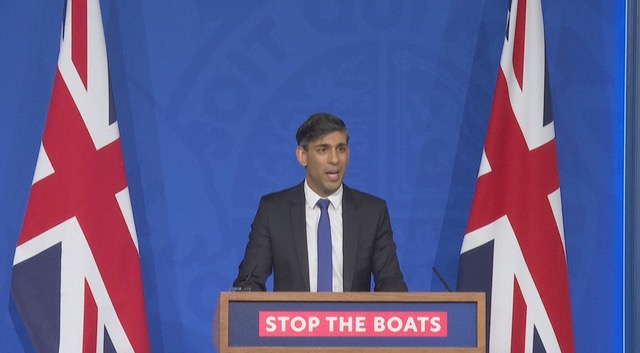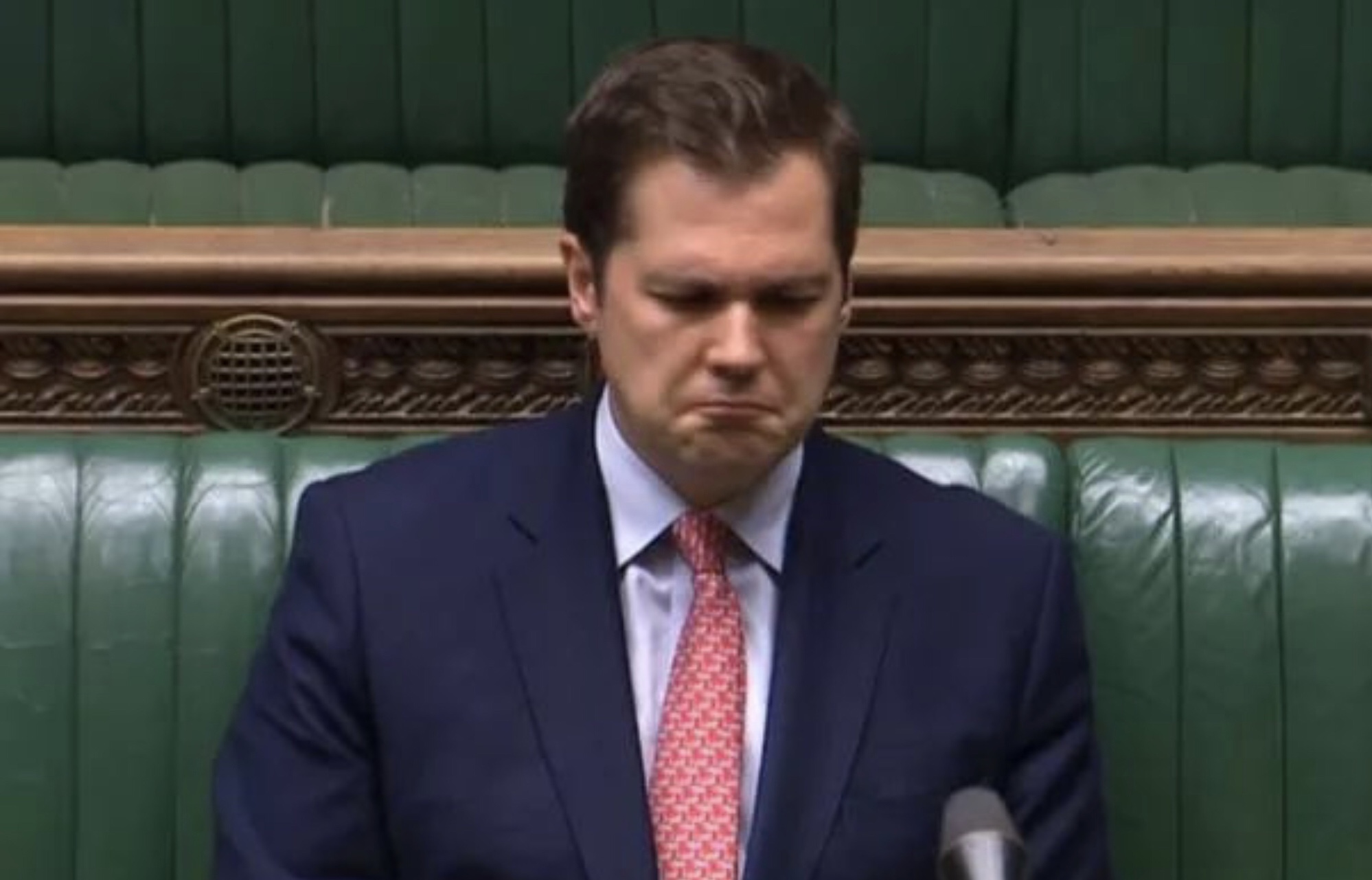It emerged on Wednesday evening, 6th December, that Robert Jenrick, the Immigration Minister who had been the principal driver for the ‘Stop the boats’ campaign, had tendered his resignation letter to the Prime Minister, Rishi Sunak. It seems that his letter had been handed in, even before the new Home Secretary, James Cleverly could step out of the plane and put his foot on the tarmac at the airport in Kagali, Rwanda, where he was scheduled to co-sign the Asylum Treaty with the Rwanda government.
On 15th November, the Supreme Court declared that sending illegal migrants to Rwanda was unlawful. It was expected that the signing of a treaty sanctioned by parliament, supported by an emergency bill, would allow government to side-step and ignore judgments from both the European Courts of Human Rights (ECHR) and UK courts including the Supreme Court and that removal flights to Rwanda could finally begin in earnest. The now former Immigration Minister, Robert Jenrick, in his resignation letter, effectively accused the Prime Minister of so watering down his initial plans, as to make them completely ineffective. Jenrick, seemed to echo the sentiments of the former Home Secretary, Suella Braverman, when he issued a statement following his resignation, which read:
‘A bill of the kind you are proposing is a triumph of hope over experience. The stakes for the country are too high for us not to pursue the stronger protections required to end the merry-go-round of legal challenges which risk paralysing the scheme and negating its intended deterrent’
Government’s Rwanda plan is ‘Fatally flawed’
One of Suella Braverman’s advisors underlined the core issue, which has dominated the discourse on the far right of the Conservative Party – many of whom gathered for meetings late on Wednesday evening. Their principal concerns raised at the meeting, were that unless the emergency bill is watertight, it will leave room for a continuation of the cycle of legal claims, which anyone of those earmarked for deportation to Rwanda can pursue in either the European Courts of our domestic courts. He said:
‘The prime minister has kept the ability for every single illegal migrant to make individual human rights claims against their removal and to then appeal those claims if they don’t succeed at first. It is fatally flawed’
The Prime Minister, Rishi Sunak, insisted that he was unable to go any further in effectively circumnavigating the jurisdiction of the European Courts or the Domestic courts, largely he said because the Rwandan government had made clear its position that it could not risk falling foul of international law. The Rwandan Minister for Foreign Affairs, Vincent Biruta in his own statement was adamant that:
‘Without lawful behaviour by the UK, Rwanda would not be able to continue with the Migration and Economic Development Partnership’

Rishi Sunak was quick to issue a statement to challenge his former Immigration Minister’s assertions. He said:
‘This bill is the toughest piece of legislation ever put forward by a UK government. It makes clear that Parliament deems Rwanda safe and no court can second guess that, it disapplies the relevant parts of the human rights act and makes clear that it is for Ministers to decide whether or not to comply with any temporary injunctions issued by the European Court of Human Rights. If we were to oust the courts entirely, we would collapse the entire scheme. The Rwandan government have been clear that they would not accept the UK basing this scheme on legislation that could be considered in breach of our international law obligations. There would be no point in passing a law that would leave us with nowhere to send people to.’
In a debate on the bill on Wednesday evening, a former cabinet minister, Mark Francois underlined the position of many on the right of the party when he asked the Home Secretary:
‘As every person we would seek to send to Rwanda is an individual, if under this legislation those people could continue to appeal and appeal in order to delay being put on a flight, what’s the point of the bill?’
Threats are apparently being made from both the moderate wing and the right of centre wing of the Conservative Party both in the House of Commons and the Lords. On one side the moderates argue that the implementation of a bill which completely ignores international and domestic law will leave the UK open to loosing its reputation and standing on the world stage. As many as ten senior ministers, have threatened to resign if he adopts a more hardline approach on Rwanda. Those on the right of centre of his party seem determined to force the Prime Minister to close any loopholes that might allow any form of appeal. It would simply require 28 MPs to rebel for the legislation to not pass. The expectation is that the Prime Minister may choose to turn the bill into a vote of confidence, which will trigger the collapse of the government. This may provide the Prime Minister with a short term fix, but there is a strong belief that even if the bill is passed, no confidence letters will pour into the 1922, directly afterwards.
‘A gross violation of ordinary constitutional conventions, including ousting the courts over administrative decisions’
Former Attorney General and Barrister, Dominic Greave, was unequivocal about the implications of the latest developments. He said:
It will be possible for individuals to argue that even though Rwanda is a ‘safe country’, their exceptional circumstances mean that they shouldn’t be sent there. Its also right that somebody will bring undoubtedly, a challenge in our own Supreme Court that in fact the bill is incompatible with our obligations under the European convention…. the government may have a credible policy… but by trying to shortcut and force the courts not to consider it, greatly undermines any credibility it has to make this policy work’
He added that:
‘The policy wouldn’t work if he had adopted the route he [Jenrick] is advocating…because Rwanda wouldn’t go along with it, it wont get through the House of Lords – who will undoubtedly reject it, because they’d be entitled to do it, because they’d say that this is such a gross violation of ordinary constitutional conventions, including ousting the courts over administrative decisions.’
Dominic Greaves further suggested that both Jenrick and Braverman’s intention all along, was to use the treaty as a vehicle to pull the UK out of the European convention – which he said, will undermine the UK’s ability to remain in the trade and cooperation agreement with the EU, will compromise the Northern Ireland Good Friday, Belfast Peace Agreement, the UK’s security and home affairs cooperation with the EU and our participation in Horizon.
Scotland’s First Minister, Humza Yousaf, declares new immigration policy and Rwanda plan as ‘morally repugnant’
Scotland’s First Minister, Humza Yousaf, responded critically to the news of the treaty and the UK government’s plans to introduce its new five point restrictions on migrants coming to the UK. Speaking in the chamber at Holyrood, he said:
‘It’s a real dark day for the UK. A country that once welcomed many immigrants including my grandfather to the country, that begged him and others to come to work in their factories, to drive the buses due to labour shortages, that were seen at that time. What successive UK governments have done – Labour and Conservative, is that they have bit by bit dismantled our immigration and indeed our asylum processes. On immigration, the latest announcements mean that we are asking – the UK government is asking, migrants to come here to look after our own family members, but doing so by abandoning their own family members back home. On asylum, the UK Government has virtually eliminated any practical, legal route for those that are fleeing war and persecution. So the policies of the UK government in this respect, they are not only morally repugnant but they are economically illiterate. So the SNP, the Scottish Government, we of course value migration. We value the importance of it to our social fabric, but also to our economy too and let me say unequivocally that in Scotland, the Scottish Government, that the SNP, we will always say that we are proud of the benefits that migrants bring to this country and we are proud that they have chosen Scotland to be their home’
One former political correspondent at the Daily Telegraph, described the current situation as less about repositioning the party in advance of the next General Election – which he suggested was a hopeless pursuit, but more a battle for control of the heart and soul of the Conservative Party. The ‘malcontents’ as he described them, were not a big enough group to bring down the government. However there are many who see this group as having little to lose by continuing to disrupt the government until an election is called.


















